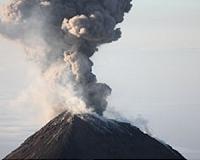| . |  |
. |
Gothenburg, Sweden (SPX) Jan 31, 2011 A climate tax corresponding to euros 60/ton CO2eq on meat and milk could reduce greenhouse gas emissions from European agriculture by around seven per cent. If the land made available is used for bioenergy production, the decrease in emissions can be six times greater. This is shown by the researchers Kristina Mohlin, Stefan Wirsenius and Fredrik Hedenus, University of Gothenburg, Sweden, in an article published in the scientific journal Climatic Change. Kristina Mohlin is a PhD student at the Department of Economics at the University of Gothenburg. She wrote the article together with her research colleagues at Chalmers University of Technology in connection with her degree project at the Department of Energy and Environment. In the article, the researchers show that reduced meat, milk and egg consumption has two effects: a direct one which means significantly lower emissions of methane and nitrous oxide and an indirect one through land being made available which can be used for bioenergy cultivation. Food production is a source that cannot be disregarded when considering greenhouse gas emissions - globally it accounts for 20-25 per cent of emissions. However, emissions from food are difficult to tax as the principal emission sources are methane from the stomachs of cows and nitrous oxide from land to which fertiliser has been applied - both these emission sources are technically complicated and very costly to measure. There is also a lack of effective technical solutions to reduce these emissions. On the other hand, changed food habits can have a great impact. If beef is replaced by chicken, emissions decrease by 90 per cent, and if beef is replaced by beans the reduction is 99 per cent. "A tax on the emissions from food production would normally be preferable. But as this is virtually impossible in practice, and the effects of switching away from meat and milk are so great, we show that it can be far more effective to apply the tax directly to the meat and milk consumption," says Stefan Wirsenius, a researcher in the Department of Energy and Environment at Chalmers. Beef, which is responsible for the highest emissions per kg of meat, would be taxed higher under the proposal, while chicken and pork would be taxed lower as their emissions are lower. "Today we have taxes on petrol and a trading scheme for industrial plants and power generation, but no policy instruments at all for food-related greenhouse gas emissions. This means that we do not pay for the climate costs of our food," says Fredrik Hedenus, another researcher in the Department of Energy and Environment at Chalmers. A climate tax on meat and milk would probably also mean that land becomes available for the growing of bioenergy crops. "If the world decides on substantial reductions in global greenhouse gas emissions, land will become a scarce resource, as a lot of land may be needed for bioenergy. Land-efficient food production and consumption will therefore become increasingly important. And beef production requires twenty times more land per kcal than beans," says Hedenus. A tax equivalent to 60 euros /ton CO2 (far less than half the current petrol taxes in many European countries) would according to the calculations reduce beef consumption by about 15 per cent. "This tax is not at all a matter of forcing people to become vegetarians but merely moving towards a slightly more climate-smart diet," says Wirsenius.
Share This Article With Planet Earth
Related Links University of Gothenburg Climate Science News - Modeling, Mitigation Adaptation
 Man, Volcanoes And The Sun Have Influenced Europe's Climate Over Recent Centuries
Man, Volcanoes And The Sun Have Influenced Europe's Climate Over Recent CenturiesBarcelona, Spain (SPX) Jan 21, 2011 An International research team has discovered that seasonal temperatures in Europe, above all in winter, have been affected over the past 500 years by natural factors such as volcanic eruptions and solar activity, and by human activities such as the emission of greenhouse gases. The study, with Spanish involvement, could help us to better understand the dynamics of climate change. Up until ... read more |
|
| The content herein, unless otherwise known to be public domain, are Copyright 1995-2010 - SpaceDaily. AFP and UPI Wire Stories are copyright Agence France-Presse and United Press International. ESA Portal Reports are copyright European Space Agency. All NASA sourced material is public domain. Additional copyrights may apply in whole or part to other bona fide parties. Advertising does not imply endorsement,agreement or approval of any opinions, statements or information provided by SpaceDaily on any Web page published or hosted by SpaceDaily. Privacy Statement |